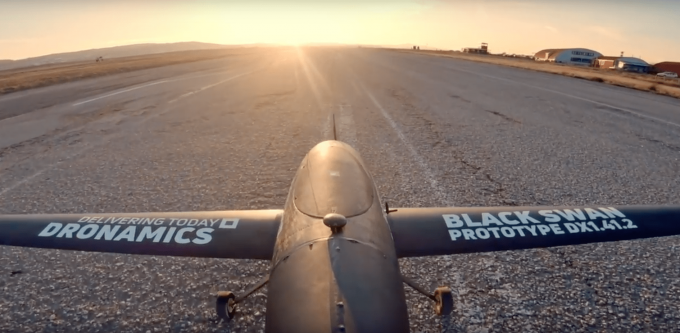Cargolux eyes move into SAF production and distribution
Cargolux is looking to expand its business activities, including getting into the production and distribution ...

Dronamics, maker of the Black Swan drone, which can transport 350kg over 2,500km, aims to begin operations in EU airspace later this year – and hopes to use sustainable aviation fuel (SAF) from day one.
“It depends on the location and availability of [SAF],” CEO Svilen Rangelov told The Loadstar.
“But our goal would be to use that whenever it is available – as you know, the supply chain for digging up dinosaurs still reaches everywhere – unlike biofuel.”
Getting into the air ...
Trump tariffs see hundreds of cancelled container bookings a day from Asia
'Disastrous' DSV-Schenker merger would 'disrupt European haulage market'
'To ship or not to ship', the question for US importers amid tariff uncertainty
'Chaos after chaos' coming from de minimis changes and more tariffs
List of blanked transpac sailings grows as trade war heats up and demand cools
EC approves DSV takeover of DB Schenker
Shippers in Asia restart ocean shipment bookings – but not from China
Forto 'sharpens commercial priorities' as it lays off one-third of staff
India withdraws access for Bangladesh transhipments, in 'very harmful' decision
'Tariff hell' leaves industries in limbo – 'not a great environment to plan'
IndiGo fleet expansion plan will include a major push to boost cargo volumes
Pre-tariff rush of goods from US to China sees air rates soar, but not for long

Comment on this article